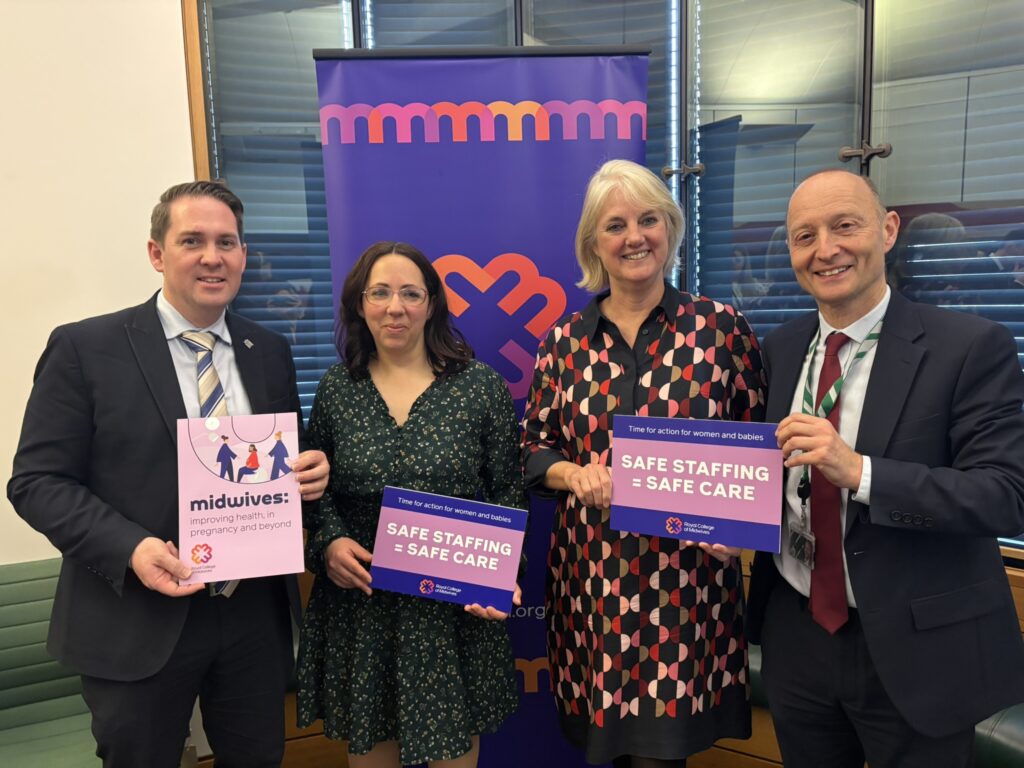The Royal College of Midwives (RCM) has welcomed Monday’s parliamentary debate on baby loss, taking place during Baby Loss Awareness Week, as an opportunity to reflect on the urgent improvements needed to maternity care.
Forty cross-party MPs spoke movingly in the three-hour debate, bringing to light the devastating impact of baby loss on families. Secretary of State for Health & Social Care Wes Streeting was in attendance and at the end of the debate he reiterated the importance of the Government’s rapid review into maternity services, telling MPs in the Chamber: “We are setting out the rapid investigation led by Baroness Amos because I need to act urgently on the systemic challenges.”
Speaking after the debate, Gill Walton, Chief Executive of the RCM, said:
“Every baby loss is heartbreaking beyond words, and every family deserves answers and support. We must do everything we can to ensure maternity services are safe to provide the best possible care for women and their babies. This debate is an opportunity for politicians to listen to families, midwives and other healthcare professionals and to commit to meaningful change.
“Holding this debate during Baby Loss Awareness Week shines a light on families who have experienced a heartbreaking loss, and the RCM stands with them. We also stand with midwives and maternity teams who are affected by baby loss. Their compassion and commitment in such emotionally difficult circumstances must be recognised and supported.”
During the debate, MP Michelle Welsh – who co-sponsored the debate and is chair of the All-Party Parliamentary Group on Maternity – said: “We have a real opportunity under this Government to make maternity safer. Every woman deserves a birth experience where she feels heard, respected and, above all, safe.
“We must ensure that every woman has access to high-quality education about birth and feels confident about asking critical questions about their care. We need to create a space where asking for help is seen not as a weakness but as a commitment to their wellbeing and their baby’s health. We must empower and support doctors, midwives and nurses, so that they can make decisions purely on medical necessity and safety – decisions that are free from dangerous judgments, including regarding C-sections.
“That requires us to have a workforce in place so that clinicians can do their job, can make time for training and, most importantly, once again have time to listen.”
The debate also highlighted inequalities in maternity outcomes, with evidence showing that babies from Black and minority ethnic backgrounds are at a significantly higher risk of stillbirth and neonatal death compared to white babies.
Ms Welsh stated in the debate that a key part of the conversation around maternity safety is continuity of care, adding: “Continuity of care can help address disparities in maternity care. When women – particularly Black, Asian and minority women – see the same midwife throughout their pregnancy, they can build a relationship and ensure that their experience, culture and religious needs are considered.”
At the end of the debate, Mr Streeting assured families affected by baby loss that he promised to implement recommendations himself, adding: “The stories I have heard from those families at first hand will be the steel in my spine to deliver the change they need.”


